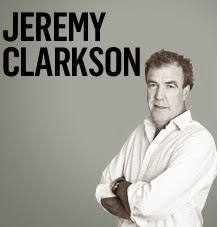- NUJ general secretary Michelle Stanistreet in a statement on The BBC cuts: “These damaging cuts are part of an existential threat to the BBC, and a direct consequence of the last disastrous, secret licence fee deal the BBC agreed with the government. This is before the impact of taking over responsibility for the over-75s licences kicks in. Against this backdrop, the BBC’s very existence is being threatened with public service broadcasting under unprecedented threat."
- Amol Rajan on BBC News: "Adapt or die is a passable motto for modern media, particularly the publicly-funded kind. The BBC faces an existential crisis. It's one hell of a moment for arguably the BBC's most important division to undertake a radical experiment."
Jonathan Freedland in the Guardian: "The BBC can be maddening, prompting both left and right to tear their hair out. But in a world of fake news, we need a broadcaster free of commercial pressure, one that aims to stand aside from the partisan din. It may not always get there. But without it, our grip on the truth would get even looser."
- Ben Fenton on Twitter: "Reporters, not necessarily in warzones, are the unreported victims of traumatic events. Not least because of guilt factor of being "vultures", but also because they don't talk about it. Covering Dunblane pushed two of my former colleagues over edge into leaving the industry."
Stig Abell, launch director of The Times and the Sunday Times' new current affairs digital radio station Times Radio which is launching this year, as reported by The Times [£]: “I want to be able to listen to this station and learn something, and get the world presented to me. I don’t want pomposity, I don’t want stuffiness.”
John McDonnell in The Times [£]: "We now see a finance, data/media complex capable of combining the traditional financial clout over economic decision-making by governments with the ability to use its ownership and influence of the various media platforms to decisively influence decision-making and even elections. As we have just witnessed, not just in the UK but across the globe, elections can be decisively influenced by the dominating ownership and control of the mainstream press, the resultant permeation of the broadcasting media and the purchase of overwhelming influence via social media and use of data targeting. This is not a conspiracy theory. There is no need for conspiracy. It’s simply the capitalist system naturally evolving to protect its distribution of power and wealth from any radical challenge."
International Federation of Journalists general secretary Anthony Bellanger, in a statement on investigative journalist Glenn Greenwald, accused by Brazil's federal prosecutor of criminal association and illegally intercepting private conversations: “This decision of the Brazilian public prosecutor evidences the systematic attacks by the Brazilian government against media freedom and freedom of expression. We stand in solidarity with Glenn Greenwald and all the Brazilian journalists who are facing permanent attacks and threats for doing their job in an attempt to intimidate and silence investigative journalists. They will never silence us.”
From the government's response to the Cairncross Review: a sustainable future for journalism: "The government accepts the public good of traditional print newspapers and is committed to maintaining zero-rated VAT in this area. We also recognise that changes in technology are shifting traditional journalism online and we are therefore considering the merits and risks associated with extending the zero rate. In addition, the government has committed to extend the existing tax relief it provides through a business rate relief for local newspapers which has been in place since 2017, until 31 March 2025. The Chancellor will consider the case for a range of potential tax incentives to support the news publishing industry this year.”
[£]=paywall




















